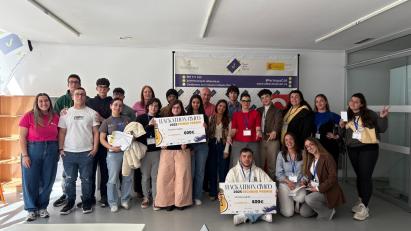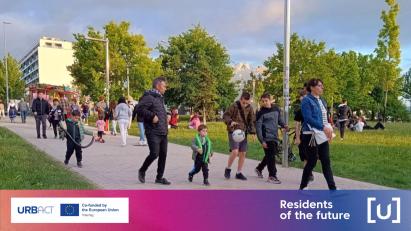19/09/2022 19/09/2022
The challenge set out by the Leipzig Charter may seem vast; nevertheless, it is only through joint efforts that we can truly aspire to better new housing developments – good, green, safe, and affordable – which will eventually give birth to the cities we want for the future of our continent. Hopus Group brings together five universities and one city administration, each working on different aspects of housing: from the urban to the building approach, from building regulations to construction technology, from environmental quality to energy certification: a multi-faceted and interdisciplinary vision, trying to cover a wide range of different problems, joining theory and practice.

Summary
Introduction
In May 2007, the Council of European Ministers for Urban development set out the Leipzig Charter: an ambitious document for the future of our cities, advocating a new way of working on our environment. One year later, European cities face the task of bringing those propositions to life, providing higher-quality housing for more and more citizens, making access to affordable housing as simple as possible. In times of economic drought this might not prove easy: yet the real challenge consists in governing the economic forces which shape our cities, organising them through processes involving both public authorities and private stakeholders from the outset, reducing conflicts along the way.
Good housing is what shapes our cities, creating space and the quality to make them attractive places to live and work in.
Green housing is needed to mitigate environmental impact, reduce energy consumption, create buildings which interact more efficiently with the environment, and produce less pollution.
Safe housing is important to protect the wellbeing – both physiological and psychological – of its inhabitants, helping cities acquire that quality of life which makes them attractive places to live and work in.
Affordable housing is fundamental to guarantee the widest access to high-quality living to citizens of all income, by controlling the housing market, building costs and energy costs.
The aim of the Urbact II Working Group Hopus – Housing Praxis for Urban Sustainability – is exactly this: to study, disseminate and implement the ways through which new housing in Europe can be efficiently oriented, using modern governance tools such as design codes or other forms of “smart” project guidance.
Hopus brings together five universities and two city administrations, each working on different aspects of housing. From the urban to the building approach, from building regulations to construction technology, from environmental quality to energy certification: a multi-faceted and interdisciplinary approach, trying to cover a wide range of different problems, joining theory and practice.
The challenge set out by the Leipzig Charter may seem vast; nevertheless, it is only through joint efforts that we can truly aspire to better new housing developments – good, green, safe, and affordable – which will eventually give birth to the cities we want for the future of our continent.
Project Hopus aims at promoting and implementing the use of design coding and other forms of "smart" project guidance for the development of sustainable housing stock in European cities.
Design codes, widely adopted in practice, are basic manuals setting guidelines and standards ranging from urban design to building construction, and are addressed to both technical operators and local administrations. If correctly used, they can guarantee a high level of integration of sustainability strategies, with particular reference to developments carried out by private investors.
Through the help of the local support groups, the working group aims at experimenting the use of Design codes in all process phases, from the drafting to their final application in real urban situations.
Partners
Lead Partner : Rome - Italy- University Of Reggio Calabria - Italy
- Delft - Netherlands
- Universidade Do Minho - Portugal
- Gdańsk - Poland
Timeline
Project launch
Project completed






